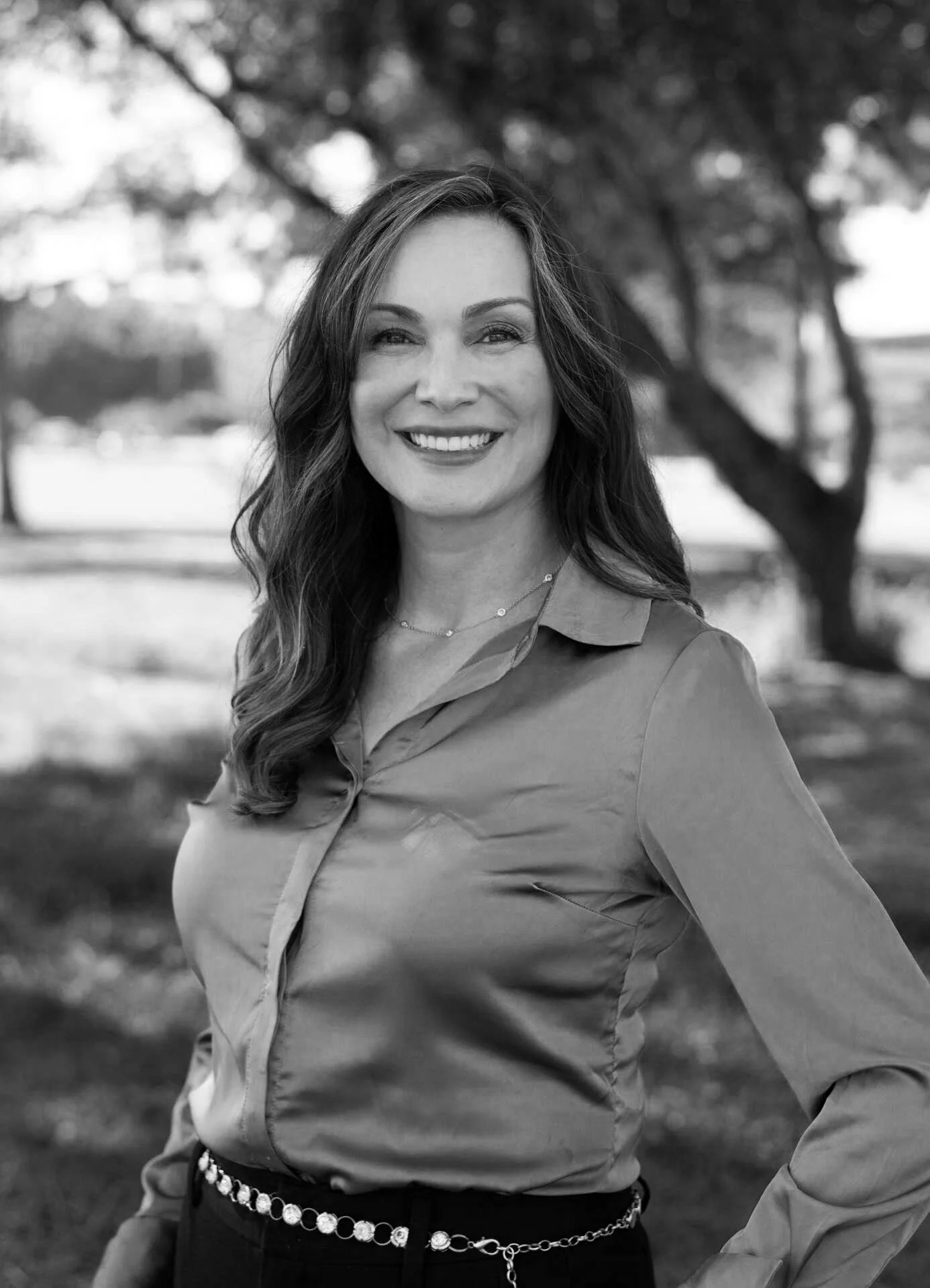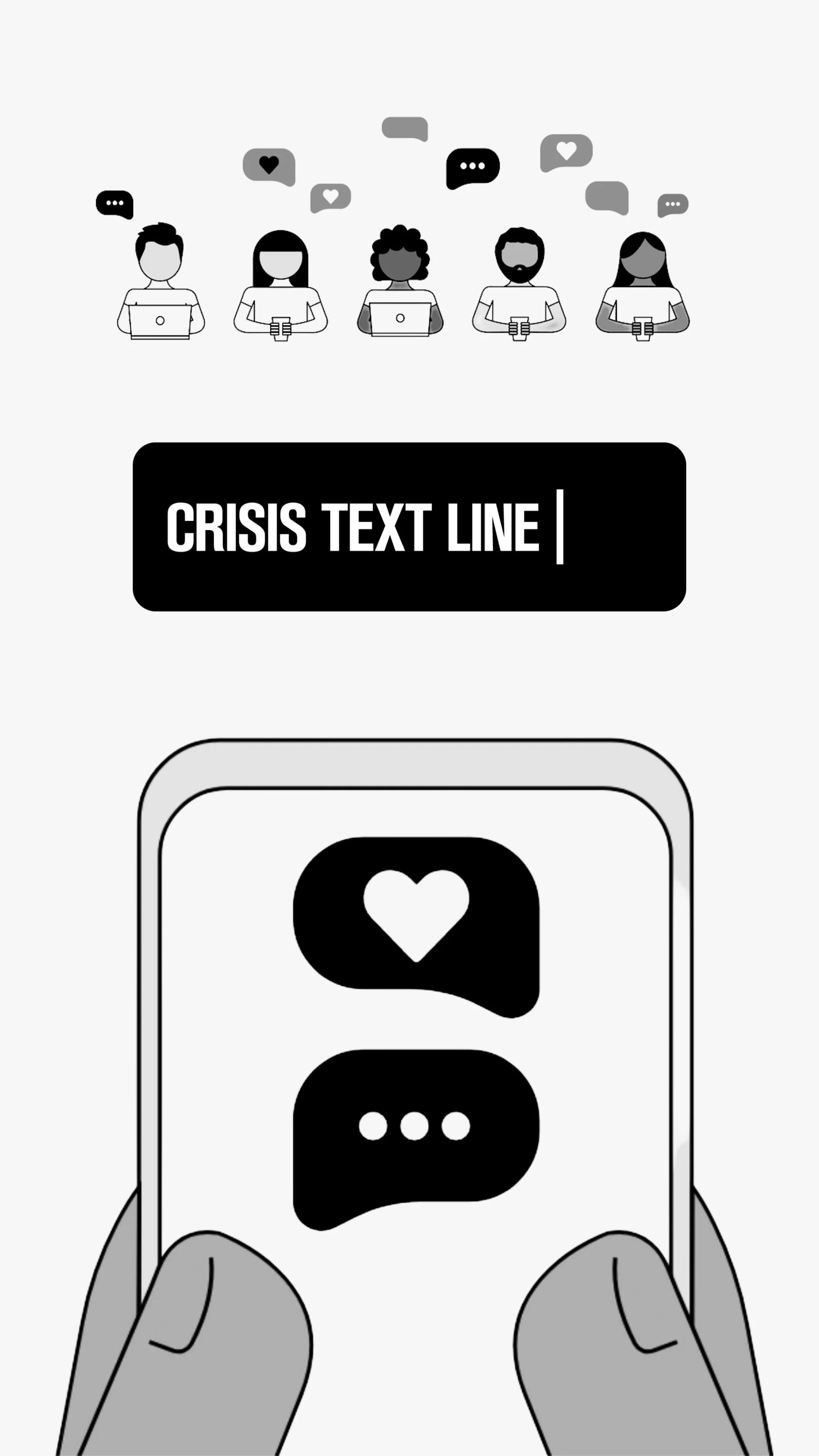112. Struggling with Depression as a Perfectionist: Dr. Margaret Rutherford on Perfectly Hidden Depression
listen to this episode:
Tune in and subscribe on your favorite platform: Apple Podcasts | Spotify | Stitcher | Google Play | Radio Public | PocketCasts | Overcast | Breaker | Anchor
Today's guest is Dr. Margaret Rutherford—a psychologist, author, podcast host, and writer! We discuss Dr. Margaret's background in the mental health field, how she identified and coined the term "perfectly hidden depression," what perfectly hidden depression is, how perfectionism can cover up emotional pain, the implications of not expressing emotions, high-functioning vs. perfectly hidden depression, warning signs to keep be aware of, Dr. Margaret's healing process for depression, how you can support someone struggling, and so much more!
My episode on the Self-Work Podcast: https://drmargaretrutherford.com/296-selfwork-teenage-depression-its-real-how-can-you-help-a-conversation-with-sadie-sutton/
Dr. Margaret's Instagram: https://www.instagram.com/drmargaretrutherford/
Mentioned In The Episode…
+ I Don't Want to Talk About It by: Terrence Real
+ What Made Maddy Run by: Kate Fagan
SHOP GUEST RECOMMENDATIONS: https://amzn.to/3A69GOC
Episode Sponsors
🛋This week's episode is sponsored by Teen Counseling. Teen Counseling is an online therapy program with over 14,000 licensed therapists in their network offering support with depression, anxiety, relationships, trauma, and more via text, talk, and video counseling. Head to teencounseling.com/shepersisted to find a therapist today!
📦This week's episode is brought to you by Amazon Prime Student. Start your 6-month free trial (and 50% off after your trial ends) and get FREE subscriptions to LinkedIn Premium, GrubHub+, Calm, Course Hero, 10% off Student Universe, and more! #ad #myprimestudent
About She Persisted (formerly Nevertheless, She Persisted)
After a year and a half of intensive treatment for severe depression and anxiety, 18-year-old Sadie recounts her journey by interviewing family members, professionals, and fellow teens to offer self-improvement tips, DBT education, and personal experiences. She Persisted is the reminder that someone else has been there too and your inspiration to live your life worth living.
a note: this is an automated transcription so please ignore any accidental misspellings!
[00:00:00] Sadie: Welcome to she persisted. I'm your host. Sadie sat in a 19 year old from the bay area, studying psychology at the university of pencils. She processed. It is the teen mental health podcast made for teenagers by a team. In each episode, I'll bring you authentic, accessible, and relatable conversations about every aspect of mental wellness you can expect.
[00:00:20] Evidence-based Tina proved resources, coping skills, including lots of DBT insights and education. Each piece of content you consume, she persisted offers you a safe space to feel validated and understood in your struggle while encouraging you to take ownership of your journey and build your life worth living.
[00:00:37] So let's dive in.
[00:00:41] Hello. Hello. Welcome back to another episode of she persisted. I'm so excited for this episode and interview today. Dr. Margaret Rutherford has been one of my dream guests for a really long time. And her perspective on depression is just so nuanced and interesting and unique from what I've heard before.
[00:00:58] And I can relate so much to what she describes in this episode. And I think a lot of you will as well. So I'm really excited for you to listen. If you don't know who Dr. Rutherford is, she's a psychologist with 25 years of experience, an author of perfectly hidden depression and a podcast host.
[00:01:13] She hosts these self work podcasts, which has over 3 million downloads. And is one of my go-to mental health podcast recommendations. So you should definitely check that out.
[00:01:22] In this episode, we discuss so much about Dr. Rutherford's background. We talk about what exactly perfectly hidden depression is, how she came across this, both in her practice and when writing a blog for the Huffington post and how many people identified with it, how it shows up in life and relationships and emotional expression.
[00:01:40] We talk about the difference between high functioning and perfectly hidden depression, which are actually really different, which was cool to hear about. And there's just so many tips in here. For how to navigate perfectionism and depression at the same time. So, if you are struggling with depression or, you know, someone's struggling, this conversation is gonna provide a lot of wisdom and I'm going to keep this introduction short and sweet because it's a school night.
[00:02:05] We're back to our normal college routine. I have four classes tomorrow. I just moved in a couple of days ago. And I'm really excited to get this episode up for you. So, yeah. That as always make sure you're subscribed follow along on social media at AHI persisted podcast, Lee review. It helps the podcast.
[00:02:23] So, so, so much. And yeah. Thank you for listening. And let's dive in.
[00:02:28] Thank you so much for joining me today on sheep persisted. I'm so excited to have you on the
[00:02:32] Dr. Margaret: show, Sadie. Thank you. And I actually, I don't know if anyone, I'm sure people have commented on the title of your podcast. I just love it. Sheep persisted. Oh, I think that's such an important idea and one that you stress.
[00:02:46] It's it's a lot of work and you have to persist in that work, but that, you know, it's something that mental healing can happen. Emotional healing can happen and I'm, I'm thrilled to be here. And thank you for having me.
[00:02:58] Sadie: I, I love that you mentioned that I started the podcast calling it. Nevertheless, she persisted and it's because when I was going through my intensive treatment journey, And I was transferring from residential treatment to a therapeutic boarding school.
[00:03:12] And my parents were touring all these schools, trying to figure out what would be a good fit. And they found this school in Montana and they went by this like little like trinket shop in town and all of these like cheesy sayings and yeah, really like. Funny t-shirts and mugs and magnets. And my dad found this shirt that said, nevertheless, she persisted.
[00:03:30] And he like was so overwhelmed with emotion and he was like, this just made me think of you and, and your journey and all that you've done in the past couple of months. And so. At the therapeutic boarding school, our main communication was like writing letters to each other. So every time we caught up or we got to talk, we would write PS, never the last she persisted.
[00:03:49] It's just kind of a reminder of that, that growth and that journey of where I'd come from and how much progress I'd made and to keep going. And so when I started the podcast, I was like, this has to be the name. I know it has like political,
[00:04:01] Dr. Margaret: gosh, looks liturgy for one thing and two. It's it's yeah, it's, it's wonderful.
[00:04:06] And it, and it says a lot about your understanding and the depth of your understanding of what needs to go on. So I'm, I'm I'm, I'm anxious to, to talk with you more and I get to have you on my podcast. I know
[00:04:19] Sadie: I'm so excited. Yeah, this is great. So I'd love to hear a little bit about your background before we dive into exactly what perfectly hidden depression is and your advice for listeners who are seeing signs of that or struggling with that in their lives.
[00:04:33] So, sure. Tell me about how you became a therapist, how you started the self work podcast and how you started observing perfectly hidden depression in your practice.
[00:04:43] Dr. Margaret: Well, I didn't have necessarily a very direct route to becoming a psychologist. In fact, somewhat circuitous, as they would say. That's a fancy word for this early in the morning.
[00:04:52] I was, I was actually a, a jingle and a nightclub singer in my twenties. Wow. I sang. I was living in Dallas and I sang advertisements for radio and television in the, in the daytime. And then I had a group at night that we didn't, we played a lot. I mean, we were a little jazz group. I tried rock and roll and I was terrible.
[00:05:11] Mm-hmm but what I learned in that profession was that, although I adore singing or singing. Having it, as what I did with my life for a living was kind of ruining it for me almost. And my personality was changing and I didn't like how it was changing. And so I had begun volunteering at the bat of women's shelter in Dallas.
[00:05:37] And I learned about, I wasn't even a psychology major in college. And so I, I learned about that aspect of my personality and my, my, what, what kind of grew in me as I was doing that. And so it took me nine years, but I got first a, a degree in music therapy. And then got accepted by hooker, by crook , as they say to a, a PhD program.
[00:06:02] I think I was led in as a curiosity actually. And you know, so it, I got my doctorate and when I was 38 years old, And have done it ever since. So I, I love being a therapist. I love being a psychologist and it's, you know, it, I'm, I'm kind of lucky now I've done three things. Yeah. In my lifetime that I've, I've sung and I've been a therapist and I've been a podcaster and a blogger and an author.
[00:06:25] So those changes and transitions have been very meaningful for me. And I'm a mom and a, her and I have a wife and all these other kinda things. Lots of, lots of titles. What happened with perfectly hidden depression is that I had started blogging in 2014. My son had left for college and I had some energy and some time actually 2012.
[00:06:48] And it was the spring of 2014. And I was thinking about my, just my weekly blog post. And I started working through some memories of some patients that I had seen over the years, that when they walked in my door, they would've denied. I mean, intensively denied that they were depressed. Yeah. I, my life is too good.
[00:07:10] I'm happy. I, you know, I, people look at me and say, they wish they had my life. But I'm a little anxious or I'm not sleeping well, or I'm, you know, having more arguments with my spouse or whatever it is. But what happened Sadie is that once they grew more to trust me and to open up, I realized that they could not access and express their painful emotions.
[00:07:35] And so I wrote this post, I just pulled this term out of the air and I said, the perfectly hidden, depressed person are you one. Well, it went viral and I never had a post go viral before. And at the time I was writing for the Huff post and it appeared there the next day and I got hundreds of emails. This is me.
[00:07:54] How do you know about this? It's like, you're in my head. And so I got curious. And of course I found Dr. Bene Brown's work mm-hmm I don't know. I must have been living under a rock didn't know about her. But I found her and then there was one other popular book, Terrence reels. I don't wanna talk about it, which is a great book.
[00:08:14] Mm-hmm But I didn't see any kind of connection, you know, because perhaps Dr. Brown is not a clinician. She talked about perfectionism. She talked about vulnerability. She talks about shame and her work is, is wonderful, obviously, but I didn't see anyone who was saying perfectionism actually can act as a camouflage for this pain and this despair and this inability to express trauma or pain from your past. It's sort of the why, you know, there are lots of people who talk about what perfectionism is and how to fix it.
[00:08:50] But to me, the why of it is just as important, in fact, even more important. So, you know, basically. Sadie. I said, well, if it's not out there and I think it should be created, then I'm gonna have the Moxi to create it myself. Mm-hmm I'd never wanted to write a book. I had no aspirations to do so. But I thought, okay, maybe this is what I'm supposed to do.
[00:09:15] So obviously that was a long road. I'm a, a psychologist in Arkansas. I'm not at Harvard or Stanford or anything like that. And I didn't even have much of a following. In fact, the blog got started. I mean, the blog, the the podcast got started because I was trying to do something I really enjoyed doing, which was getting back in front of a microphone.
[00:09:37] That's kind of. But two to get out this message about not only perfectly hidden depression, but some other misinformation that's out there and trying to just introduce people to what therapy might really be like and, and address some of this misinformation. Well, that's taken on a life of its own as well.
[00:09:58] mm-hmm mm-hmm so in 2019, we published the book, you know, the, one of the problems with perfectionism. And when you said, you know, some of my listeners out there might be thinking of themselves as perfectionist and identify with this, the problem is that most people view their perfectionism as a strength.
[00:10:15] And it is, yeah. In
[00:10:16] Sadie: many ways, mm-hmm, like type a very organized go getter. Yeah.
[00:10:21] Dr. Margaret: And there's constructive perfectionism for sure. There is perfectionism. In fact, I, I think I've considered myself one mm-hmm . And so, you know, but that is very process oriented and that's very, you it's fueled by generosity or creativity or, you know, just wanting to do good things and to make a difference and all that kind of.
[00:10:42] That's called constructive perfectionism, but there's destructive perfectionism, which certainly perfectly hidden depression or what I begun calling trauma based perfectionism is actually can be very dangerous. In fact, lethal little trigger warning. We're gonna be talking about suicide here. So what they have found is that there are certain kinds of destructive perfectionism that actually.
[00:11:05] Have a tremendous amount of lethality that they are when, when you have this inability to connect and express despair, pain suffering you, you can't have compassion for yourself. That kind of thing that it can, it can lead to some suicidal thoughts. And I certainly, I have been contacted by many people in the last, what eight years.
[00:11:26] with stories just like that. And so getting to be on a podcast like yours is so important to me, especially to reach your, your teenage audience and your young adult audience, because there have been some well, not celebrity, but they are college young college athletes. And certainly there's been a lot of publicity about how these people who seem to have it all yeah.
[00:11:48] Are killing the. And, and no one
[00:11:51] Sadie: knows their parents are like, we never saw it coming. Everyone's so confused.
[00:11:56] Dr. Margaret: Yeah, exactly. There's a great book that was written several years ago. Now it was about the same tragic. Event when a young lady named Mattie Holland killed herself at the, at, in Pennsylvania.
[00:12:10] In fact, I think she's going to, you're going to uni UPEN, right? Yeah. Yeah. I she's either Penn state or UPEN and it was, was mm-hmm but it's called what made Mattie run and Her parents actually, you know, wanted to do the story to try to address just what you're saying, that there is such a tendency for parents to deny or discount teenage depression as just T or confusion.
[00:12:37] And I heard your, your dad talking about you and your dad talked about that. And when that I listened to. And, and yet, and it is hard to discern sometimes mm-hmm and yet I would much rather people make the error of over, over, you know, emphasizing it or really looking into it more deeply than make the other error error, absolutely.
[00:12:59] Of not paying enough attention to it. mm-hmm
[00:13:02] Sadie: Two days episode is brought to you by teen counseling. You guys know whenever I have a therapist on the podcast, I'd love to share teen counseling with you because it's a great way to try therapy or meet with a new therapist. If you don't already have one that you're meeting with. So teen counseling is better.
[00:13:17] Helps. Branch of therapy for teenagers. They have over 14,000 licensed therapists within their network and they offer support on things like depression, anxiety, relationships, trauma, and so much more. And they offer talk text and video counseling. So depending on what level of support you're looking for, they're able to meet your needs and match you with a therapist that specializes in that area, which is great.
[00:13:39] So, if you are interested in teen counseling, you can use the link in the show notes or go to teen counseling.com/she persisted. You have felt a quick survey about what you're hoping to work on, and you are matched with the therapist that again, specializes within that area.
[00:13:51] And then if you are under 18, you put in a parent or guardians email for consent for treatment and payment. But none of your information about your goals for therapy are disclosed because HIPAA is enacted. So yeah, they match you with a therapist. Your parent gives consent, you provide payment and then you start meeting with a therapist it's super easy.
[00:14:08] It's a quick turnaround. You don't have to worry about super long wait lists and finding a provider in your area. You are able to. access a huge database of therapists that specialize in so many different things. So to start therapy or meet with a new therapist, you can use the link in today's show notes, or go to teen counseling.com/she persisted again.
[00:14:27] That is teen counseling.com/she persisted. so talk to me about the differences between like high functioning depression, which is a buzzword that's going around recently and then perfectly hidden depression. Yeah. Which very like similar terms.
[00:14:44] How can people tell the difference between the
[00:14:46] Dr. Margaret: two? I'll tell you how I tell the difference. Mm-hmm . People who have smiling depression or high functioning depression know they're depressed. Yeah. They know they're depressed, but they have. The ability, their, their depression isn't deep enough. Isn't debilitating enough.
[00:15:05] And certainly there are plenty of those people. But they go on and they put a smile on their face and they take their meds and they exercise and they go to therapy and they you know, I'm a high functioning anxiety disorder. I have panic attacks. Do panic attacks govern my life anymore? No. Did they.
[00:15:22] Many years ago. Yes. To a certain extent, to a certain extent. And so to me, that's the distinction. Now. I think people with high functioning depression could read my book or hear the term and go, well, that's me, that's me. And it's not that maybe they don't need to address some of these things that the, the book addresses cuz there's 60 exercises in the book, but there's a huge difference.
[00:15:47] Because what can happen to someone? You know, the trauma that these people that causes this camouflage to be worn mostly happened very early in life. When you grew up in a family where there was abuse or neglect, and obviously you weren't allowed to talk about it or express it. If you grew up at a family that just wouldn't allow you, I mean, sad feelings.
[00:16:09] Don't, if you're sad, if you're angry, get, go to your room and come out. When, when you, you feel, you know, you can smile. Maybe you grew up in a family where your parents were alcoholic and you had. Take care of your younger siblings. So you, you became a pseudo adult, maybe you had to go pick up those same parents from a bar late at night.
[00:16:28] You know, maybe you grew up in a very high achieving family and you, you, you learned that. You're not supposed to struggle or show struggle. You're just supposed to exceed expectations. So basically there are lots of, as we'd say in Arkansas, there are a lot of ways around the barn, but the point is that when you Dawn this camouflage at first, even when you're 3, 4, 5, 6, it's a, you kinda know what you're doing.
[00:16:56] I mean, even little kids I'm, I'm not supposed to cry. And yet what happens is it seeps underground. It seeps into your unconscious mind where you actually are not even aware you're doing it. That's why those emails from the Huff post were so enlightening to me because several people, I mean, I don't know how many now it was too many years ago, said until I read those words perfectly hidden depress.
[00:17:23] It didn't occur to me that maybe I was doing my gut had been trying to say something to me, but it's like, yes, I'm hiding perfectly. And I'm, I'm very, I'm very committed to hiding perfectly. And, and I've spent years making sure that no one knew my struggles that I didn't make mistakes that I didn't have.
[00:17:45] I didn't ex you know, I didn't let my show. because it's fueled by fear and shame. It's not fueled by creativity. It's not fueled by generosity. It's, it's not that these are bad people. They could be very generous people. But the point is that there is this inner voice of shame. You know, you don't really belong where you are.
[00:18:05] You're doing the wrong thing. If you, if you. Admit that you're tired or you're sad or you're angry, or you're scared you're doing something wrong. You know, you're showing something that, and, and, and you'll, you'll lose everything. And so it is an, it has gone, gone from a conscious process into an unconscious process.
[00:18:29] Sadie: Are there like a top three or five warning signs that people can be aware of for perfectly hidden depression, whether it's like a certain way you talk to yourself or a way that you work through emotions that arise, things like that, that could make it differ from a typical depression diagnosis or a typical
[00:18:47] Dr. Margaret: presentation.
[00:18:47] No, it it's not a diagnosis. Mm-hmm I'm not narcissistic. Yes. In fact, I talked to a couple of the primary researchers. They premier researchers, they were. Wonderful to speak with me very early on. And I asked them, should perfectionism be a symptom of clinical depression? And they said, no, perfectionism, you know, is a character trait.
[00:19:07] Sadie: But's interesting because neuroticism is one of the biggest traits that increases your predisposition for both depression and anxiety. Yes. And so. It like makes you think, I, I agree with you that like that to an extreme degree would even further the, the symptoms that you're experiencing.
[00:19:25] Dr. Margaret: Exactly.
[00:19:26] Exactly. So I came up with what, what I would call the idea that perfectly hidden depression is a syndrome. it's it's like co codependency is probably the most well known syndrome. Yeah. Where it's a group of behaviors and beliefs that tend to fall together. Mm-hmm and you you'll find them like salt and pepper.
[00:19:44] I mean that you just see one and you see the other one. So I think this inner voice of shame that. You know, you try to perhaps discard or not listen to, but it is highly critical and highly shaming. If you're somebody who always takes the responsibility, if you need a lot of control you're sort of a hidden warrior or secret warrior.
[00:20:04] If you believe that. You are being selfish. If you talk about your own needs and that you are, you know, always counting your blessings. I, I have so much, I shouldn't, you know, I shouldn't do this. If you live your life by absolutes, I must, I ought to if no one knows you, you know, these people make great friends, but they, because.
[00:20:30] They, they wanna do for others, but nobody really knows them. You know, I, if, if you've been somebody's friend for five or six years, and then you realize, you know, she's never talked about her parents or she's never talked about, you know, she says, if, if something, if you break, she breaks up with her boyfriend, for example you know, she'll say, oh, you know, if I started crying, I'd never.
[00:20:55] She excuses herself from doing the things that, you know, would show vulnerability. So it's a or sh you know, maybe, you know, somebody who was raped and in school or something like that. And, and yet she shows very little to no emotion. Now, again, there are lots of ways of grieving. I'm not saying that, but at the same time, you just never see her.
[00:21:18] So those are the kinds of things you wanna, there is a questionnaire on my website at Dr. Margaret rutherford.com. If people wanna take it to kind of assess where they might fall on the spectrum of perfectly hidden depression. And the reason why I've I've started using the term trauma based perfectionism is because what I realized over what I have realized since I wrote the.
[00:21:40] is that, that, that trauma is what re that early trauma that is pushed away. Discounted what I call rigidly compartmentalized is the psych psychological term for it repressed that. Th that, that is present in people with this perfectly hidden depression. And so, you know, but, but they will say things like, oh, that only happened once or, oh, you know, that happens to a lot of college girls or whatever it happens to be.
[00:22:10] so
[00:22:11] Sadie: talk to me about the healing process from perfectly hidden depression. I know you talked about these emotions that are suppressed and the importance of leaning into those processing them. There's the shame that has to be addressed in the book. How do you advise people that feel they fit this syndrome?
[00:22:30] Navigate this
[00:22:32] Dr. Margaret: a great question. Great question. One of the things that. I think is so important and I, I'm not, there are a lot of perfectionism workbooks out there that you can, and I'm sure I'm sure some, of course it's a
[00:22:47] Sadie: workbook, perfectionist course, a good workbook.
[00:22:49] Dr. Margaret: Exactly. A good homework assignment.
[00:22:51] Oh, I finished the workbook. What I try to tell people is that the it it's so important to know the why. Yeah. It's, it's so important and that. Deeper work than filling out a, you know, a questionnaire. Because I, I think that if you don't dig something up by its roots, that it's just gonna, you, you may look like it's gone, but it will probably surface somewhere else, you know?
[00:23:16] Yeah. So the model I have for a healing strategy is that first again, It's consciousness. You've got to understand that it's a problem and recognize and become more mindful of how it's governing you. And that in itself can be hard work. Oh yeah. And that is the level. I think that a lot of people, a lot of those workbooks are address and they're good and they're good.
[00:23:39] Become conscious of, of how it's a problem. You also have to look at the difficulty in actually committing to the change. You know, the The idea that, you know, the perfectionist do all kinds of things. They start with the hardest thing. They want it to go fast. They get impatient. They struggle with actually developing the trust in the therapeutic relationship or the, just the, they, I mean, I've had people tell me the very first exercise in the book is to, is to write a mantra.
[00:24:13] It can be two words. It can be sheep persisted. mm-hmm it can be anything that will help you stay focused and will help you and guide yourself. And I've had many people tell me I stopped there because I couldn't think of a perfect mantra. And, and I got so frustrated that I, I jumped over that. Yeah. And so that kind of commitment to allow yourself to be vulnerable is really part of the work.
[00:24:43] The third thing is pretty classic C B T. It's to look at. I've already mentioned the absolutes you're you're following you're generally you're following the rules that you were taught as a child, or that you learned the hard way as they say that I must do this. I cannot be this. I cannot look like this.
[00:25:03] And so you begin to look at those, but again, going deeper than that, you don't just look at the rules. You look at the beliefs underneath them. Mm-hmm for example I grew up in a family that would say, don't, don't tell anybody you have panic disorder. like, I just did. They would say, you know, if that's your problem, you, you must keep it private.
[00:25:24] And so. By breaking that rule. I also had to address the belief and of that rule is that if you have a mental illness or if you are struggling mentally or emotionally, you'll be rejected. You won't be safe. You, you, people will think less of you. That's the belief. The fourth stage is called connection and is it's all the, all the stages are hard.
[00:25:49] This one is probably the most. The most dramatic in that a system I use is what's called the trauma timeline. And you literally go back with compassion and you begin to acknowledge the things in your life that were good, the things in your life that made you happy. And then the things, or you found happiness and the things that were trouble.
[00:26:15] And, and were abusive or neglectful or whatever they were. And you do this timeline from the time you were a young child to whatever time you want to and what you can begin to do. And people say, well, I don't wanna go back and blame my parents. It's not about blame. It's about acknowledgement, acknowledgement, anyone going through this would have this reaction.
[00:26:35] Mm-hmm . And so then what you can begin to see is if, is, is the pattern You know, I probably wouldn't have done what I did at 14 or 17 or 27. If I hadn't had this happen to me when I was four. Yeah. And again, if your trauma is severe, you should not do this work by yourself. You need a therapist, you need a therapist, but the last one, so there's, there's Consciousness commitment.
[00:27:03] I mean, this is kind of marketable. Okay. I can do that too. Love it. what my, my publicist publisher wanted consciousness, not my favorite thing. Consciousness, commitment confrontation connection. The last one is change. I've been a therapist for 30 years and I've watched a lot of aha moments that are very powerful.
[00:27:26] I've watched a lot of people say, wow, you know, I didn't realize that until right now. And you can see a change in their body. You can change, see a change in their mind and in their heart and in their very soul. But, but Insight's wonderful. But what gives you hope is behavior. I, I'm not sure how you've changed your life since you got treatment.
[00:27:52] But I imagine the things that started bringing you hope were when you wouldn't have said something before, because you were too depressed and you could say it when something made you angry and all of a sudden you would never have expressed that or whatever your form of depression was. You found yourself able to articulate it or it's, or it could be the, you know, the, the presence of something that then you choose not to do.
[00:28:18] Mm-hmm so it's when you see your life, your choices, your behavior, changing your thought patterns, changing that, then you can say, wow, I'm really very hopeful about this. This is going to be. A much better life. And, you know, I think though, if there is a concept or if there is a way of being that is the antidote for this trauma based perfectionism or per perfectly hidden depression, it is self-acceptance.
[00:28:47] And what, how I define self-acceptance is that you know, or you recognize, you realize you own whatever words we wanna use, that your strengths do not define you any more than your vulnerabilities. And vice versa. I've used the example that there are three letters after my name. I'm very proud of those three letters.
[00:29:06] I worked very hard for those three letters. Mm-hmm it gives me the license to do something I love to do. And you're getting one, you know, you wanna get, yeah, but I also have been married three times and I had a very tumultuous twenties, decade or more, and I made a lot of mistakes. I had a lot of growing up to do.
[00:29:24] I've now been married. What 32 years so, you know, I've I did better. I made a much better choice, a much more sane, emotionally mature choice. Mm-hmm but that's also a fact about me. Yeah. And I don't think either one of those facts define me completely.
[00:29:44] Sadie: Does that make sense? I love that
[00:29:46] Two days' episode is brought to you by Amazon prime student. That is right. I am working with Amazon prime student this semester, and I'm so excited because I am an Amazon addict. I love shopping for so many different things on Amazon. It's so convenient. It's my go-to whenever I really need anything.
[00:30:02] I send myself 37 items to the Amazon lockers here at Penn to get myself set up for the semester. And I shared a couple of those fines on Instagram TikTok. So you should check those out. Amazon prime student is great for college students because you get a six month free trial, so you don't have to pay for prime for the first six months.
[00:30:20] And after that it's 50% off the regular price of prime. So you get free shipping, you get access to Kindle unlimited Amazon prime music, Amazon prime video. And for Amazon prime student memberships, you get free subscriptions to LinkedIn premium grub plus, which means no delivery fees, calm.
[00:30:37] If you're working to improve your meditation practice course. and you get 10% off student universe, which is like travel and flights and discounts there. So there are so many great reasons to sign up for Amazon prime student. It's convenient. It makes your life easier. Anything and everything from textbooks on Kindle to toiletries that you need to order or close anything.
[00:30:57] And everything's on Amazon. It's so convenient. The shipping is so quick. And so I highly recommend, so you can use the link in today's show notes, or go to prime student.co/join student. Again. That is prime student.co/join student. for people that are surrounding someone that is struggling with perfectly hidden depression, obviously like you mentioned, it, it is hidden.
[00:31:21] They're doing so much to prevent others from being aware that they're struggling. They don't Des. Believe that others deserve to know they're struggling. How can you support someone? I mean, it almost as if you wanna like, use this validation with everyone, because you don't really know who is struggling with perfectly hidden depression, but how have you found Support like supporting someone to be
[00:31:42] effective.
[00:31:44] Dr. Margaret: Actually, it's the same advice I give when maybe they look, maybe they have an addiction issue or maybe they have more classic kinds of depression or anxiety and they're just not addressing it. I think you have to talk about yourself, you know, you say to your friend I, I get, I, sometimes I realize that our relationship feels Unbalanced that I talk to you a lot about what's going on with me, and you're a great Lister and I appreciate it so much, but I want to give to you as well.
[00:32:17] And that seems like something that you're not okay with. I I'd like you know, I noticed that you struggle with letting me in or it seems that you do. And I, I would love it. If, if we could work on that or something, you address how you are feeling. What you are seeing, not an accusatory way, but in a way that says, or I'm sad that you seem to It worries me, or I'm sad that you just are busy all the time.
[00:32:48] Yeah. You don't know how to relax. You don't know how to play. And I get worried about you that you're gonna burn out something that, and, and, and I happen to read this blog post or listen to this podcast about perfectly hidden depression. And I'm wondering if I could send it.
[00:33:04] Sadie: Mail
[00:33:04] Dr. Margaret: the whole book.
[00:33:06] yeah, that's right. And so it's really an invitation to in fact, one of the early, early exercises in the book or refl, you know, they called them reflections, whatever is to think of the one person there is in your life that you could risk. Opening up to a little bit often, that's someone for someone with this kind of perfectionism that could be someone who's an old friend, maybe doesn't even live in the same city, so you don't have to risk seeing them.
[00:33:35] Yeah. But you have, you know, what would it be like to say even to someone, but this is where you start, you start where you are and you say sometimes I realize that I don't, I don't talk about. all that I experience with you. Mm-hmm yeah, I am. I am scared to do that, or I don't know how to do that. And then if it's a truly caring friend, they might say, well, you know, you can anytime and you say, I know, but I just needed to say that one thing.
[00:34:08] that's where I need to start. It's just to say it's really hard for me to open up to. And you start where you are and then, and, and then, you know, you're, if, if you, if you feel like someone else is struggling with this, then basically I guess, an invitation and just as just to have some remarks about what you're observing and what it feels like to be you in the relationship with them.
[00:34:35] Sadie: Yeah. I, I remember that was built into our therapy structure. When I was in residential every Friday we would do, we called it exposure to exposure therapy group. And every like other Friday, it was a vulnerability group. And you would choose one thing to share with the entire group for one, like dreaded all week, we would take avoid it.
[00:34:56] We would be like, what are we gonna share? Because it had to be something that. Brought up this fear and these emotions that you could work through them in a healthy way. And it, it was so effective in building that muscle of being vulnerable and asking for help and sharing something that was scary.
[00:35:09] And in that safe environment. And then you could translate it to your parents or friends at home. So it's, it's extremely effective and something that I still use today, if I'm like, I feel like I'm isolating a little bit more, it's feeling more scary to share things. I'm like, okay, Gonna be more vulnerable intentionally and try and share these things so that I don't get to a point again where I'm so isolated.
[00:35:32] Dr. Margaret: Exactly. Now I will say that often people like this surround themselves with people like them. yeah, yeah. That don't don't know how, or don't aren't comfortable with going deeper. I remember anorexic severely Anor. Patient, I had one time said she had a group of friends and they were all fairly an, you know, they all had were on the spectrum of anorexia and they used to call it sexy REI.
[00:35:56] Oh goodness. And it's it's because, and so they would eat their lettuce leaf and laugh. Oh, we, we are courting sexy, you know yeah, sexy Rexi today. And so you have to be like the Instagram posts that are, are, are platforms that are all about validating anorexia. And so often people who are perfectionist are either drawn to people.
[00:36:18] Who want partners or friends who will take all the responsibility so they can under function and they can be under responsible, but they also may be attracted to other people who just kind of wanna live on the surface. Mm-hmm . And so that's really finding that valued, as you said, a valued friend or, or in, for your audience, a parent who You can open up to safely.
[00:36:42] And that, and that has that capacity to listen to you is very important. And, and that's why therapy can be very important. One of my concerns. Real concerns is that our mental health profession follows the DSM model, the diagnostic and statistic of minimal of mental disorders far too rigidly.
[00:37:05] And in fact, a lot of the researchers in perfectionism have said the same thing that, that this presentation of depression is being missed. And. I got it. When I'm presenting to clinicians, I use this text or, or it was a, well, it was a voicemail that someone sent. A young, a young woman. And she said she loved her therapist and she was working out with her and actually she'd done so such good work.
[00:37:29] And, but then she, she heard something about perfectly in depression. She tuned it in, she realized it really identified. She identified with it. She got my book, she read it, it felt very affirming to her. And she went to her therapist. and said, I, I think I'm this. And the therapist looked at her and said you don't fit criteria for depression.
[00:37:52] And if you were depressed, I would've put you on an antidepressant a long time ago. That is response that too many clinicians have. Yeah. The example I use to try to, because of mental health professional might say to me, well, how am I supposed to read this? Person's mind. You know, in cardiology, you're very young, so you don't remember this, but in cardiology, all the research was initially done with males, which is, you know, a part of medicine.
[00:38:20] Now they're finally, you know, and have for years been researching females, but females would go in and tell the cardiologist, I don't feel right. And they would ask them about their symptoms and they were symptoms that men have. And they said, no, no, no, you're you don't, you don't have a heart attack.
[00:38:36] You're not gonna have a heart attack and sure enough, they'd have a heart. Okay. So it wasn't until they began researching and using studies with women, that they began to understand that there was a different set of criteria they needed to look at. I think the mental health profession needs to do the same thing.
[00:38:54] I think the mental health profession shouldn't just ask. Do you feel hopeless? The answer would be no. Mm-hmm they'd say if you felt hopeless. Would you say something the answer would again be no, and you'd have a window in or they might say, oh, of course I would. But it's like, eh,
[00:39:14] Sadie: you had a
[00:39:14] Dr. Margaret: question that yeah, your, your lived experience with them is that they don't talk about anything.
[00:39:19] That's that's Painful or vulnerable. So you can, we're not asking the right questions. And so many of these people, I mean, the, the suicide rate is going up and especially in, in teenagers and young adults, mm-hmm and a, a good, many of those are perfectionist who didn't know how to ask for help. Yeah.
[00:39:39] And prob, and may not have gotten it when they. If you could
[00:39:43] Sadie: say one thing to someone that's listening that is currently struggling and is feeling seen, but they're not sure how to continue forward. They're like at the beginning of this process, what would you say
[00:39:56] Dr. Margaret: again? Another wonderful question. So, so they have found someone that they feel seen by, but they don't go forward.
[00:40:03] Okay. Well, if that, if the, if the person you feel seen by is a therapist, I think that just saying to them, and I've had patients say this to me. I'm not always going to be perfectly honest with you. I don't know how to be. Mm-hmm I'm not lying to you, but I don't quite know how to talk about what I'm experiencing.
[00:40:31] please be patient with me. You know, this is hard for me. So I think that that's a good place to start if it's a friend or something like that. I think that making sure that that person is not going to also help you discount it. Yeah. That, and, and so sometimes, you know, I heard your own father again, I'll reference him say, you know, I didn't understand that you could be depressed.
[00:40:59] I didn't understand that I needed to take this seriously and just think about the person who doesn't look depressed. Yeah. And they try to talk to their parents and say, no, I'm. I'm struggling more than I'm letting you know. Well, you know, you can talk to me rather than saying, tell me what, what gets in your way, go deeper, go deeper and be vulnerable yourself.
[00:41:22] Mm-hmm so I think the steps are They can be slow, but it is so important to allow yourself that, that camouflage, that armor, that you've got around you, that you it's kind of like the game of Jenga. Mm-hmm , you know, you, you have to pull out a piece. That's not gonna make the whole thing tumble down.
[00:41:42] That's a really good analogy to use that if I'm gonna continue doing this. Yes. I still have to feel like I'm not losing everything that I've I've accomplished, but at the same time, I've gotta start taking out piece by piece and be patient with yourself. But it is such an important journey, such an important journey.
[00:42:03] Sadie: I love that for people to continue to utilize your resources, consume your content, where can they find you?
[00:42:10] Dr. Margaret: My website has the creative name of Dr. Margaret ruthford.com. love it. The podcast is the self work podcast and it's found everywhere. My book it's called perfectly hidden depression and it's on Amazon Barnes and noble.
[00:42:24] Go go to your local library. Go pick it up at some local bookstore and give them some business. And you could email me and ask Dr. Margaret at Dr. Margaret rutherford.com or leave me a voicemail on my website. You can do that as well. I'd be happy to hear from anyone. Awesome.
[00:42:40] Sadie: Well, all of those will be linked in the show notes.
[00:42:42] Great. Thank you so much for sitting down with me. I know this is gonna help so many teenagers, and I think, especially in the teenage demographic, when you don't feel seen by family members or it doesn't feel safe to voice what you're feeling, I feel like this is something that's very prevalent. So I'm so glad we got to shed some light on this.
[00:42:57] Dr. Margaret: I'm too Sadie. Thank you. Of
[00:42:59] Sadie: course.
[00:43:00] Thank you so much for listening to this week's episode of she persisted. If you enjoyed, make sure to share with a friend or family member, it really helps out the podcast. And if you haven't already leave a review on apple podcasts or Spotify, you can also make sure to follow along at actually persisted podcast on both Instagram and Tik TOK, and check out all the bonus resources, content and information on my website.
[00:43:22] She persisted podcast.com. Thanks for supporting. Keep persisting and I'll see you next week.
© 2020 She Persisted LLC. This podcast is copyrighted subject matter owned by She Persisted LLC and She Persisted LLC reserves all rights in and to the podcast. Any use without She Persisted LLC’s express prior written consent is prohibited.































